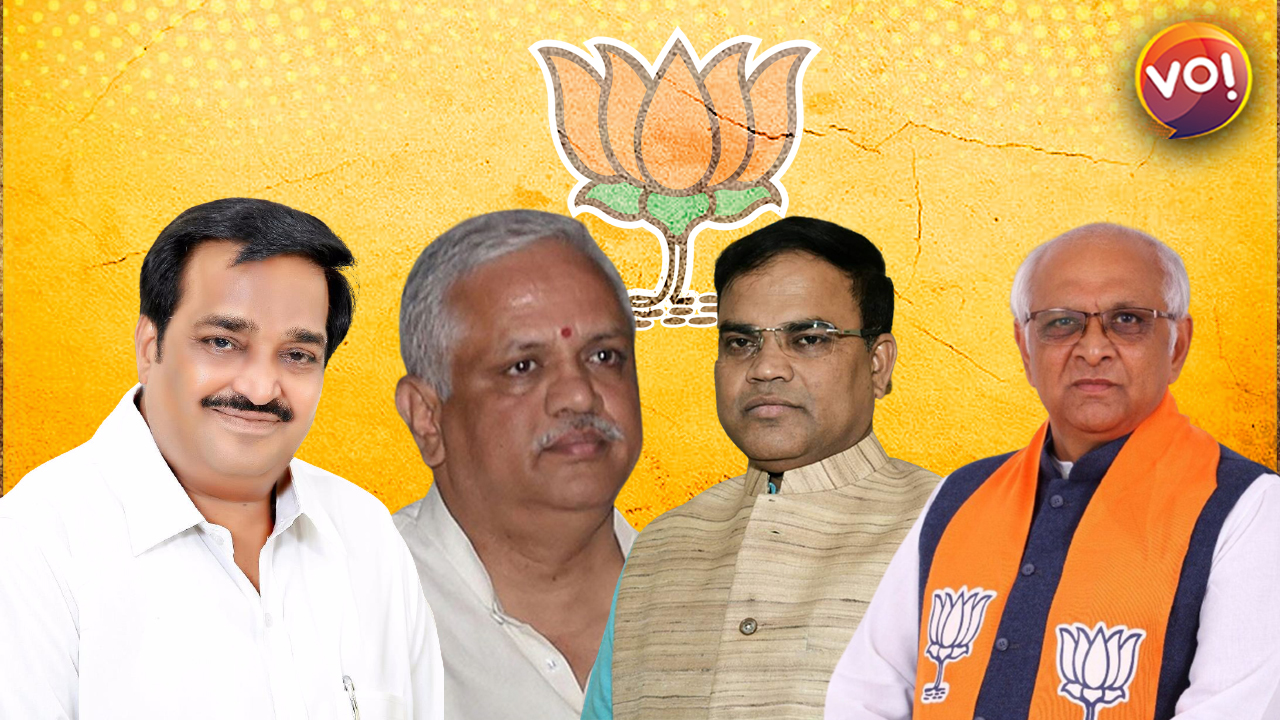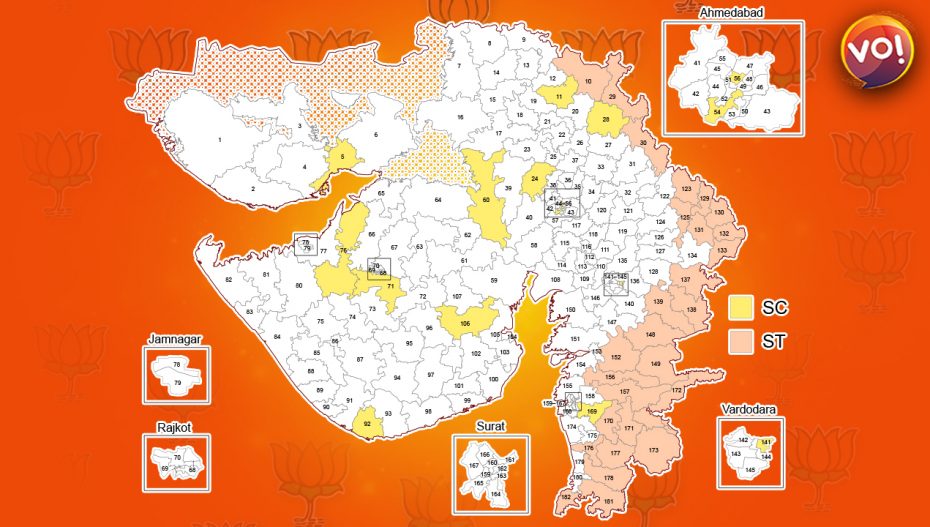Even as the opposition Congress is still busy trying to disentangle from its own organisational issues, the BJP is already discussing the brass stacks with the Rashtriya Swayamsevak Sangh and its ancillaries are likely to play a bigger role in the Gujarat Assembly election strategies this time.Top BJP sources confirmed to Vibes of India that the RSS is expected to take up responsibility of 40 tough seats reserved for the Scheduled Castes and Scheduled Tribes, identified as challenging seats for the party.
A senior leader present at a strategy meeting, requesting anonymity, said, “This year, the RSS is likely to play a far greater role in Gujarat and work on challenging seats with the heavy influence of Dalits and Adivasis”.

As part of this exercise, the RSS has chalked out an extensive six-month plan in the name of Samarasta Abhiyan (loosely translated as a campaign for harmony among communities).
It is being perceived that while the BJP remains strong in the urban areas, though the Aam Aadmi Party may play a spoilsport in certain regions, the party needs to break into hitherto Congress strongholds. Though the BJP has over the years found a toehold in the Dalit and Adivasi regions, the control is not complete. “Since the party targets to win not less than 150 seats, it needs to strengthen itself in these areas,” this leader said.
In 2017, the BJP could win only 7 out of 13 seats reserved for Scheduled Castes and 10 out of 27 seats reserved for Scheduled Tribes. The 125 vistaraks and pracharaks of RSS have been tasked to strengthen the BJP in these assembly constituencies.
A long closed-door meeting between BJP National General Secretary (Organisation) BL Santhosh, who is known to be a close backroom man of Prime Minister Narendra Modi, Gujarat Chief Minister Bhupendra Patel, Gujarat BJP chief and Navsari MP CR Paatil, went into all the aspects of the Gujarat elections, including future schedules and region-wise strategies.
As for the Scheduled Caste and Scheduled Tribe seats, a senior member associated with RSS said 22 cells of the Sangh are working in Gujarat. From these, institutions like Vanbandhu Kalyan Parishad, Ekal Vidyalaya, Dharam Jagran Manch and others are focusing exclusively on building a stronger foothold among Dalits and Adivasis. This time, one pracharak has been assigned 2 assembly constituencies.
The Sangh will also reach out to religious gurus and leaders of these communities. Gujarat BJP’s general secretary (organisation) Ratnakar has already held the first rounds of meetings with various religious leaders. “The party has accorded top priority to meeting the temple and its priests in its outreach program,” a source said.
Meanwhile, national BJP President JP Nadda is scheduled to visit Gujarat anytime this month and launch the party’s “name plate campaign” in the tribal regions. The “name plate campaign”, which was first experimented in Nadda’s constituency Bilaspur in Himachal Pradesh, is about putting up a specially designed name plate outside the home of every BJP worker.
Nadda was scheduled to launch this from Bardoli in Surat district on Saturday but this programme was postponed. The new schedule will be announced soon. After Himachal, Gujarat will be the second state in the country to introduce the number plate idea.
The Sangh Parivar is likely to experiment its “Sabari Mahakumbh” in the tribal regions of Gujarat. In 2017, the BJP won 8 seats in reserved seats of Dangs, Valsad, Surat district and Navsari and the party snatched these seats from the Congress party in by-elections. The Sangh is learnt to have reconverted a section of the tribal Christian community in these regions.
“Gujarat Bus Operators Should Not Stop At Muslim Dhabas Or Be Ready For Consequences”

















